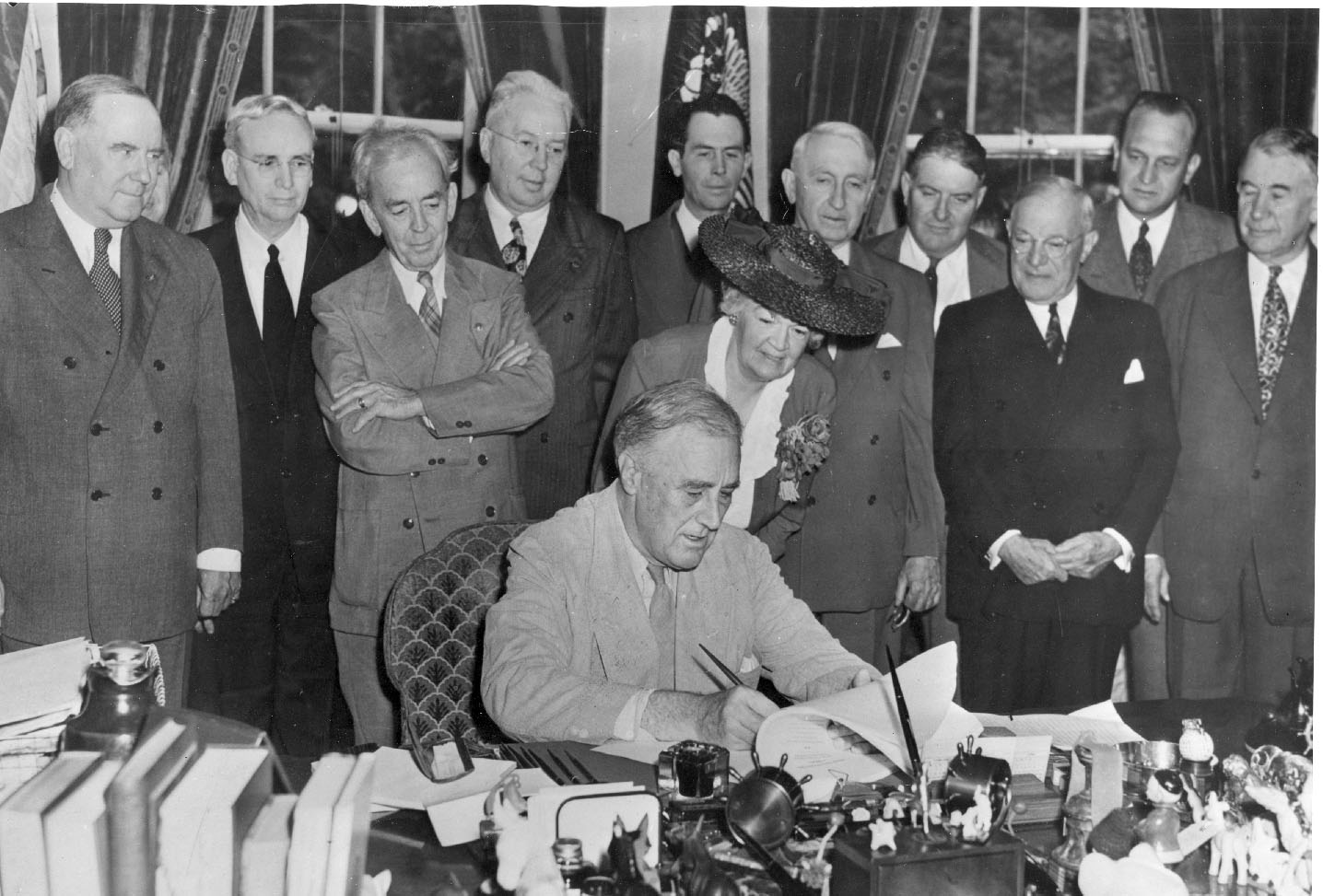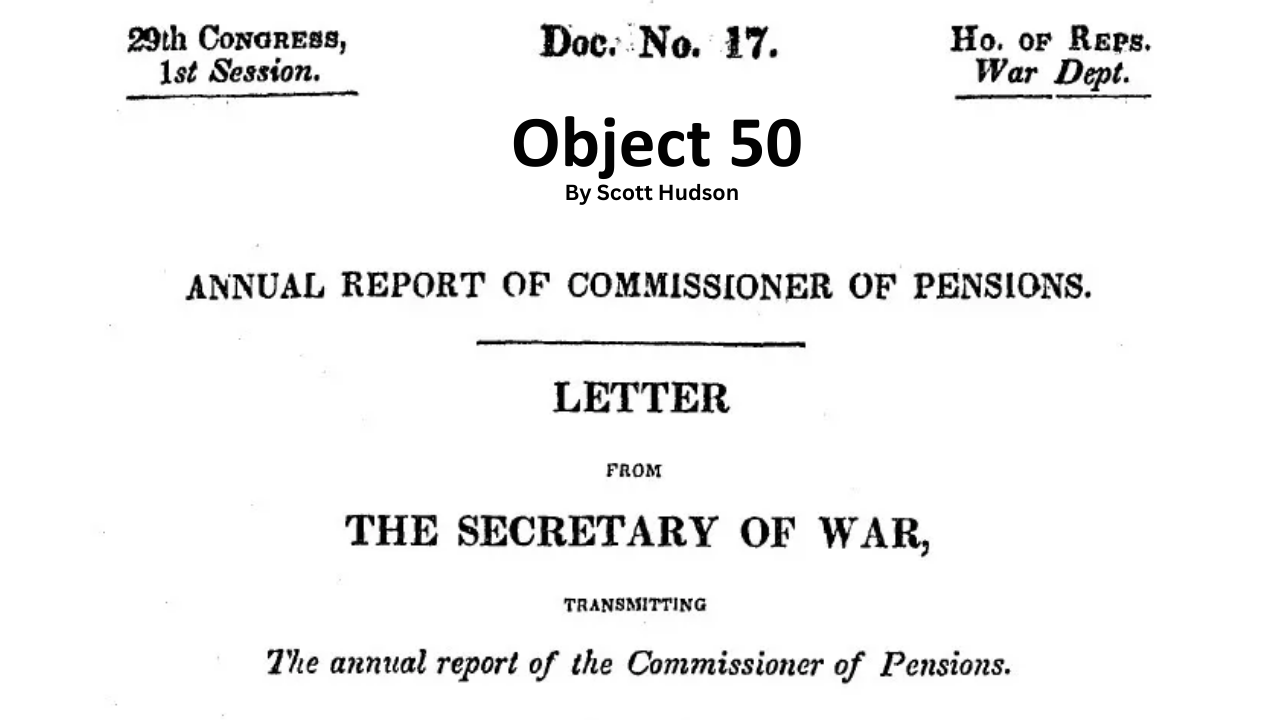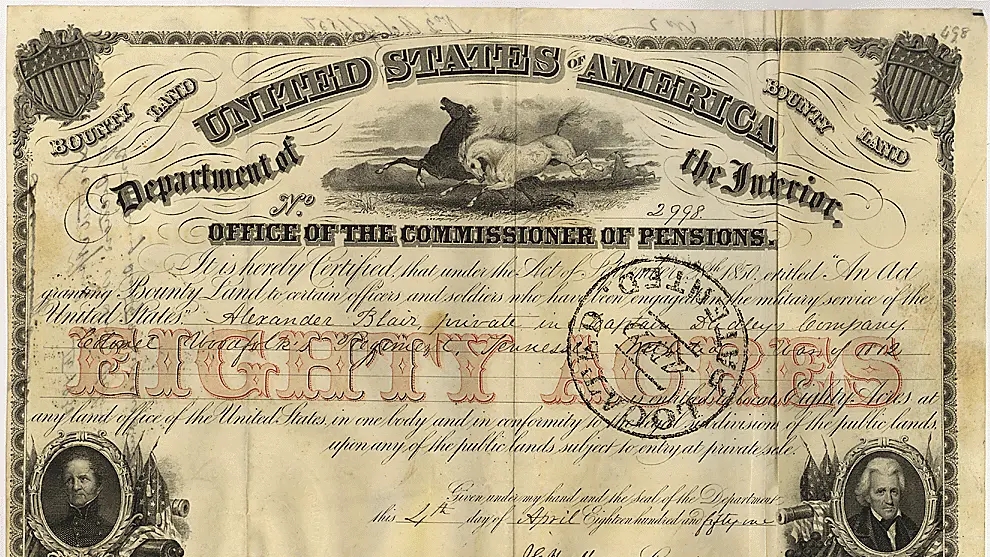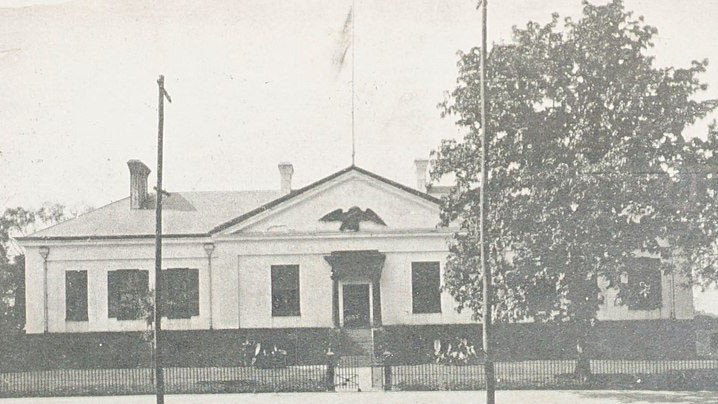
Featured Stories
Edith Nourse Rogers, Champion of Veterans and Women in the Military
Edith Nourse Rogers was a trailblazing politician and prominent proponent for Veterans benefits. She accomplished much in her decades-long career - to include admitting women into military service and creating a G.I. Bill of Rights.

History of VA in 100 Objects
Object 50: Commissioner of Pensions Annual Report
In 1832, the federal government found itself with a pension problem largely of its own making. In June, Congress passed a law granting a pension to all surviving Revolutionary War Veterans who had served for at least six months, but the increased applications overwhelmed the staff handling claims. A Commissioner of Pensions was then appointed to address the issues.

History of VA in 100 Objects
Object 42: Pension Bureau Special Examiners
The pension system expanded enormously after the Civil War. The number of Union Veterans, widows, and dependents drawing a pension from the federal government rose from 15,000 in 1863 to over 200,000 in 1871. The soaring size and costs of the pension system raised concerns about the prevalence of fraud, which the Pension Bureau aimed to stop with special examiners.

History of VA in 100 Objects
Object 39: “Here’s To Veterans” Vinyl Records
As World War II ended and millions of service members returned home, the Veterans Administration faced the major challenge of not just delivering benefits and medical care, but also ensuring broad public awareness of these programs. The VA Public Relations office in Washington took on that challenge. And, so, Here’s To Veterans was born.

History of VA in 100 Objects
Object 21: Bonus Army
After World War I, Americans discharged from military service faced a difficult homecoming. Many struggled to find work in the tight labor market created by a post-war recession. After a deferred payout, the Bonus Act, was passed, many Veterans marched on the capital to voice displeasure. The Bonus Army soon formed.

History of VA in 100 Objects
Object 7: Portrait of Revolutionary War Veteran Joseph Winter
More than 15,000 Revolutionary War Veterans qualified for a pension. Veteran Joseph Winter was one of the unlucky few who did not. Winter lived in a settlement near Bethlehem, Pennsylvania before the war, where he supported his family as a weaver. As he grew older, his vision deteriorated and he could no longer perform the work required by his chosen trade. With no pension, Winter became homeless.

History of VA in 100 Objects
Object 2: Bounty Land Warrant
For a nation with limited financial resources, bounty land warrants were an appealing tool to encourage military enlistments. The promise of free 160 acres was the country's second benefit authorized for Veterans. However, the measure had devastating effect on the Indian nations that were dispossessed from the land.

Featured Stories
The Winston-Salem Regional Office: Celebrating 100 years of service to North Carolina’s Veterans
The same law that established the Veterans Bureau in 1921 authorized the new agency to open up to 140 offices at the sub-district level. The purpose of these field offices was, in the words of the bureau’s founding director Charles R. Forbes, to “bring all of the activities of the Veterans' Bureau closer to the men they serve.” The Winston-Salem Regional Office celebrated 100 Years in 2021.



